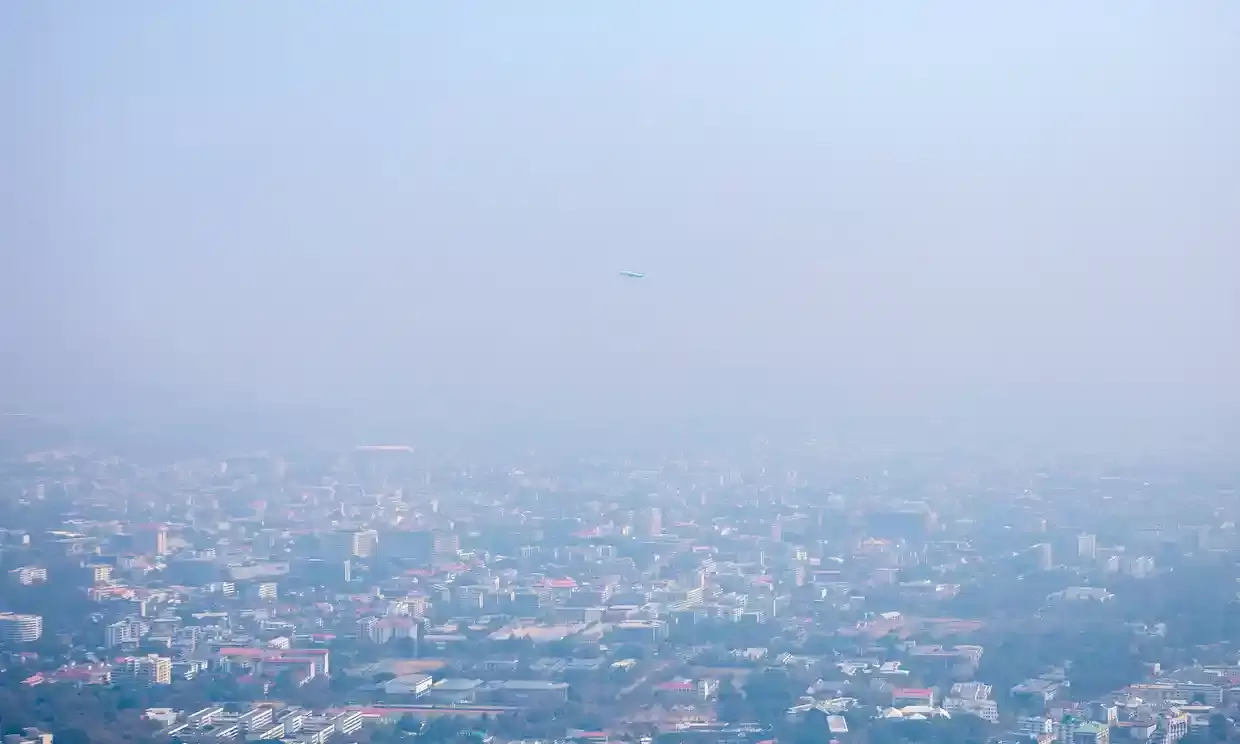In response to dangerously high levels of air pollution caused by forest fires, Chiang Mai authorities in northern Thailand will distribute face masks to the public. The fires are an annual problem, occurring between December and April when farmers burn their fields to prepare for the next crop cycle. The government has closed several national parks and wildlife sanctuaries in the north and west due to the fires, and cloud-seeding is expected to be used in some areas. Despite efforts to extinguish the fires, including water drops from helicopters, the dry weather conditions have made it difficult to control them.
To reduce dust levels in Chiang Mai, authorities have sprayed water mist along the roads and collected leaves to prevent fires from spreading. However, the city was recently ranked as the worst in the world for air pollution by IQAir, with PM2.5 particulate matter levels reaching 117 micrograms per cubic metre. The public has been advised to avoid outdoor activities, use N95 masks or air purifiers, and seek medical care if they experience symptoms such as respiratory tract problems, dermatitis, or eye inflammation.
To reduce dust levels in Chiang Mai, authorities have sprayed water mist along the roads and collected leaves to prevent fires from spreading. However, the city was recently ranked as the worst in the world for air pollution by IQAir, with PM2.5 particulate matter levels reaching 117 micrograms per cubic metre. The public has been advised to avoid outdoor activities, use N95 masks or air purifiers, and seek medical care if they experience symptoms such as respiratory tract problems, dermatitis, or eye inflammation.
The persistent annual haze caused by the fires may negatively impact tourism in Chiang Mai, a popular destination known for its mountainous landscapes. According to the president of Chiang Mai’s Tourism Industrial Council, companies offering outdoor activities have seen a decrease in demand. Bangkok has also experienced dangerous levels of pollution, with PM2.5 levels reaching 94.2µg/m³ and ranking among the top 10 worst cities globally by IQAir. While the Ministry of Natural Resources and Environment expects southern winds to help clear particulate matter from Bangkok’s air, northern provinces are predicted to experience high dust levels for another week.





